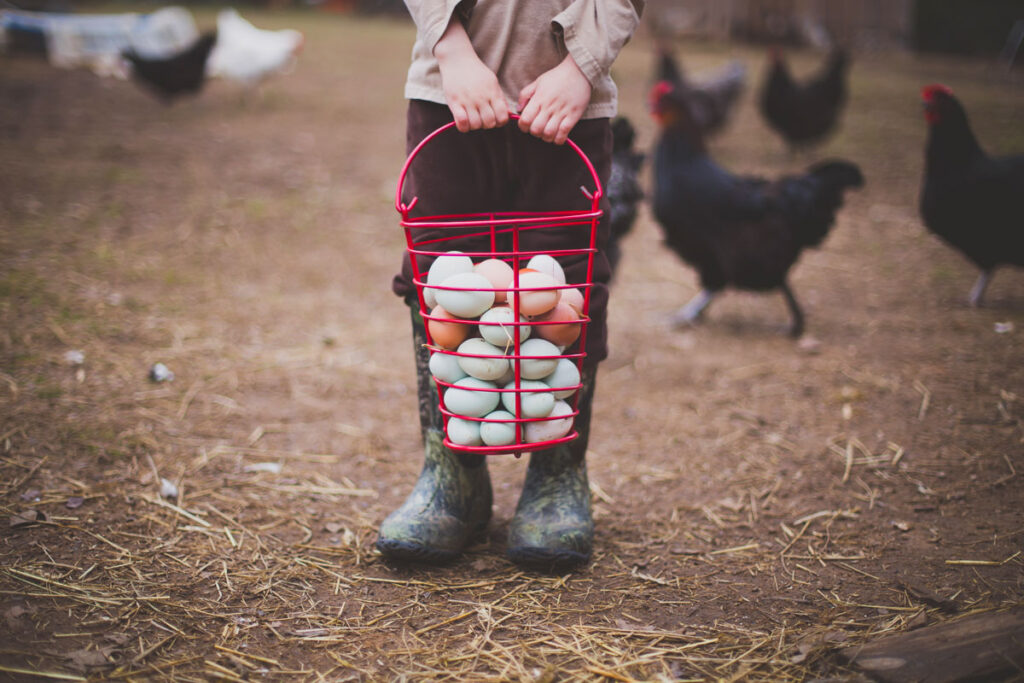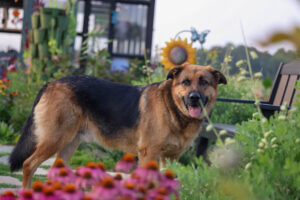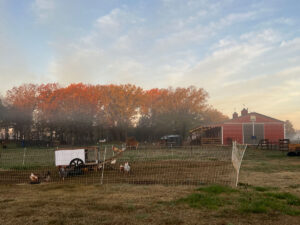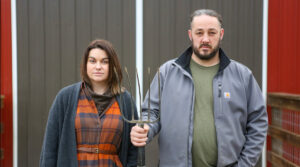Whether you are looking for a meat chicken, great egg layer, or family pet, here is the best chicken breed for you! I’m also sharing info on rare heritage breeds and which chickens handle cold weather best.
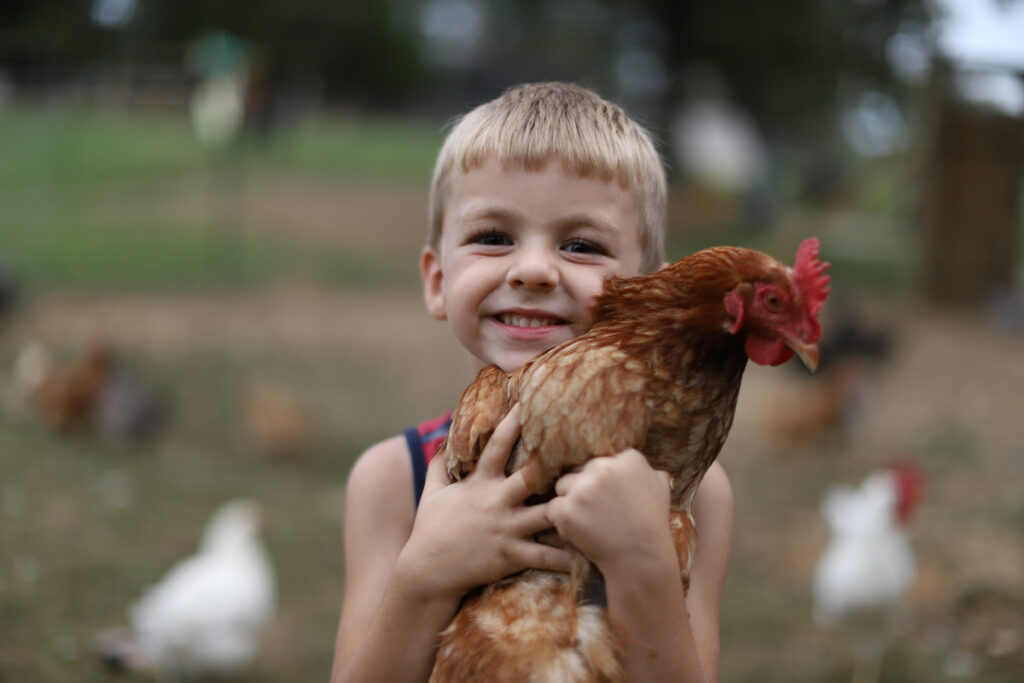
It's important to consider all the factors of where you live when getting chickens to raise in your backyard.
You all know how much we love raising heritage breeds here at Roots & Refuge Farm, and we love sharing our journey with you in hopes of inspiring your homesteading realities.
If you have egg-laying chickens, be sure to check out our post on what to do if your chickens stop laying. This can happen from time to time for a variety of reasons, so it's good to be able to troubleshoot.
Before bringing home your chickens, read through this post so you can consider how much space you have, how your weather/climate affects the breeds you should choose, and whether you want egg-layers or meat chickens.
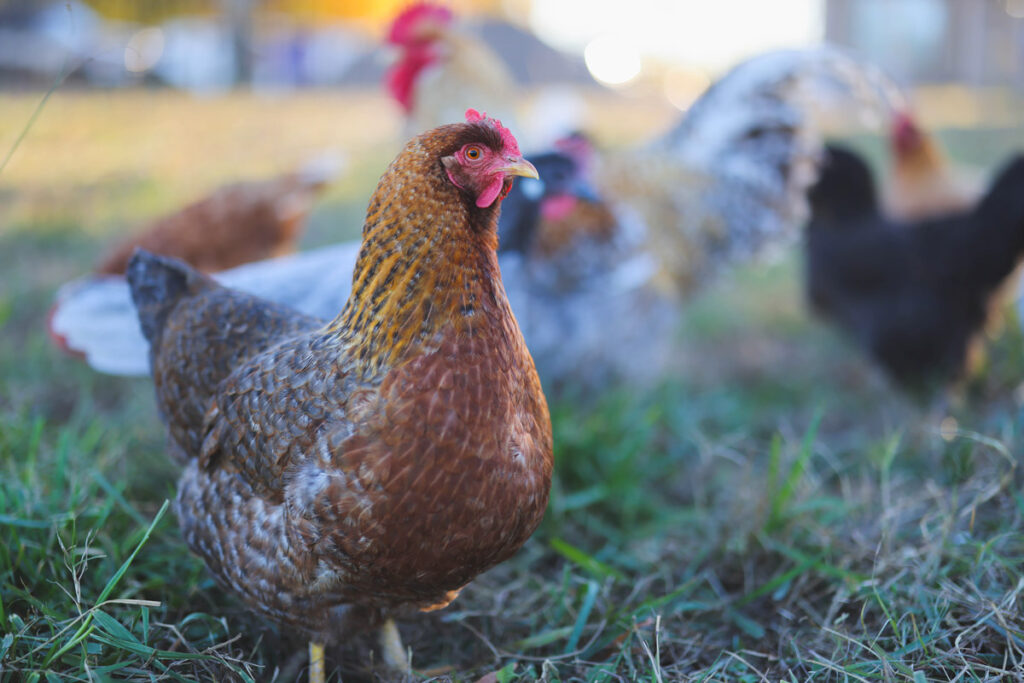
Why I Love Raising Chickens
Chickens are a favorite farm animal that can be kept almost anywhere you live, from a rooftop coop in New York, a backyard flock in the suburbs, or free-range chickens on a homestead.
They are generally low maintenance and versatile which makes them a great introductory farm animal. Plus they are beautiful and really fun to raise.
But be forewarned about chicken math, it’s a real thing! You’ll start with a few, and before you know it your flock has multiplied!
Docile Chicken Breeds
- Bielefelders are beautiful, large, extremely docile birds. Tom calls them gentle giants like big teddy bears. You might want to give this newer breed a try!
- Orpingtons have a popular dual-purpose breed with a quiet disposition.
Rare Breeds
The McMurray Chick Hatchery specializes in rare breeds and works closely with the Livestock Conservancy. For over 100 years, they have maintained and preserved the original 35 chicken breed lines that were sold by Murray McMurray in 1917.
These are not hybrid breeds but have remained unchanged over all those years. If you are interested in adding rare breeds to your backyard flock, consider some of these rare breeds on the Conservation Priority List :
- Houdan
- Faverolles
- Crevecoeur
- Dark Cornish
- Redcap
How Much Space do Chickens Need?
Before you order chickens, you need to know how much space you have. Chickens need at least 10 inches of roost space and two square feet of space to move around inside the coop.
We allow our chickens to free-range throughout the day and they're only in the coop at night. If you're planning to keep your chickens cooped up the whole time, you'll need about 4 square feet per bird.
We don't recommend keeping chickens cooped up all the time. Chickens can become territorial and aggressive when stressed, and they can become stressed when they're cooped up all the time.
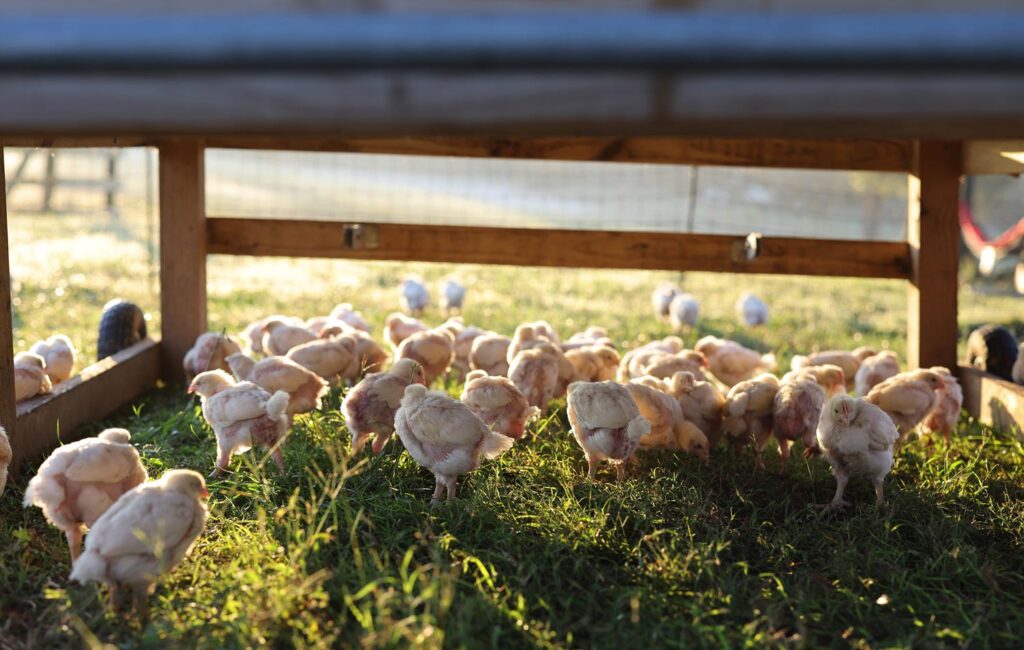
How Many Chickens Should I Buy?
We do recommend ordering a few more chickens than you think you want. Sometimes during transportation or in the chicks' first few days of life, you can lose a few. Furthermore, sexing chicks can be difficult (telling which sex the chicks are) so in a large order of 50 chicks, you may end up receiving a few roosters.

FAQs About Raising Chickens
I get asked a lot of questions about raising chickens. While visiting a hatchery to purchase our chicks, I noticed that Tom, President and co-owner of McMurray Hatchery, literally had a chicken database in his brain. So I asked him a lot of your questions and wanted to pass along the answers to you.
Murray McMurray has a free catalog that is a really cool reference. They put a lot of information in it about each breed like egg production, mature weight, temperament, comb shape, weather tolerance, conservation priority, and more.
If you are starting a flock or purchasing chicks, I highly recommend getting their catalog. A word of warning though, with all the beautiful pictures, getting the catalog might result in a larger than anticipated chicken order.
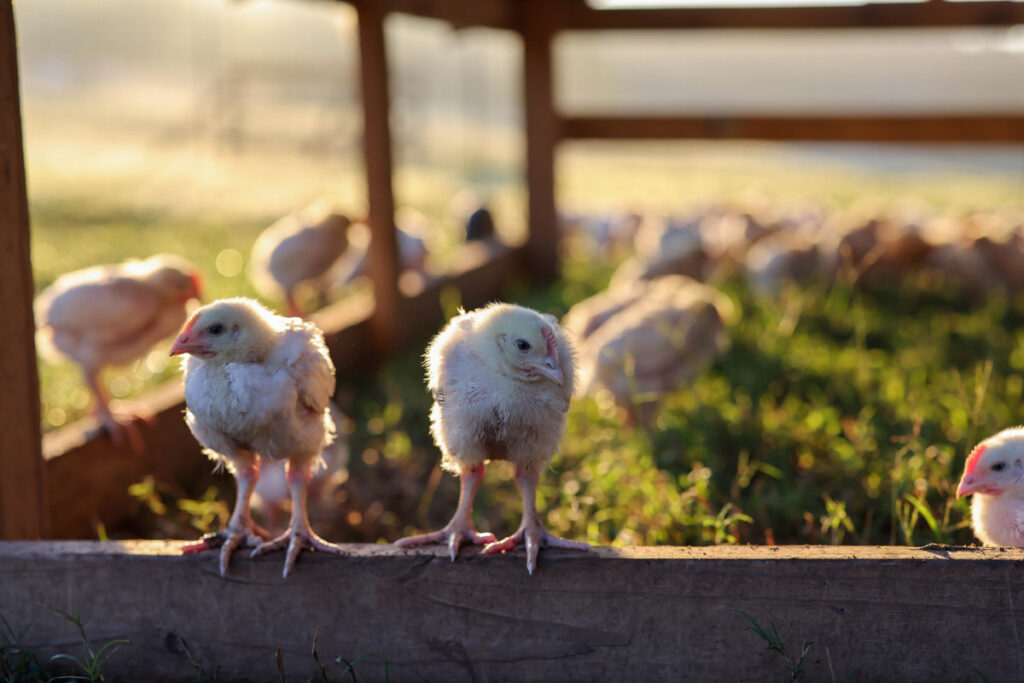
What are the Best Chicken Breeds for Beginners?
Heavier chicken breeds tend to be the most forgiving and most tolerant of all-weather types which makes them easier keepers for new chicken owners. Typically, brown egg layers are heavier breeds than white egg layers.
- Orpingtons are at the top of the easy keeper list. At Murray McMurray, they call the Buff Orpington the golden retrievers of the chicken world because they are a good, all-around, dual-purpose breed that is known to be really friendly.
- Plymouth Rocks are another really good breed for beginners. They are great layers and can tolerate heat and cold.
What are the Best Chickens for Cold Climates?
Heavier breeds tend to do better in cold climates too. Chickens are surprisingly hearty animals, so don’t assume that it is just too cold where you live to raise them. Tom, from Murray McMurray, said that they regularly send chicks to Alaska. Even in northern Alaska, people are successfully raising chickens. So what does he recommend? Heavy breeds with small combs.
- Wyandottes are a terrific breed. They are a heavier and rounder bird that isn’t particularly tall.
- Brahmas are large, heavy chickens with feathered feet. They are gentle and hardy which also makes them a good choice for beginners and families too.
- Cochins also do well in cold climates and are popular breeds to keep in the far north.
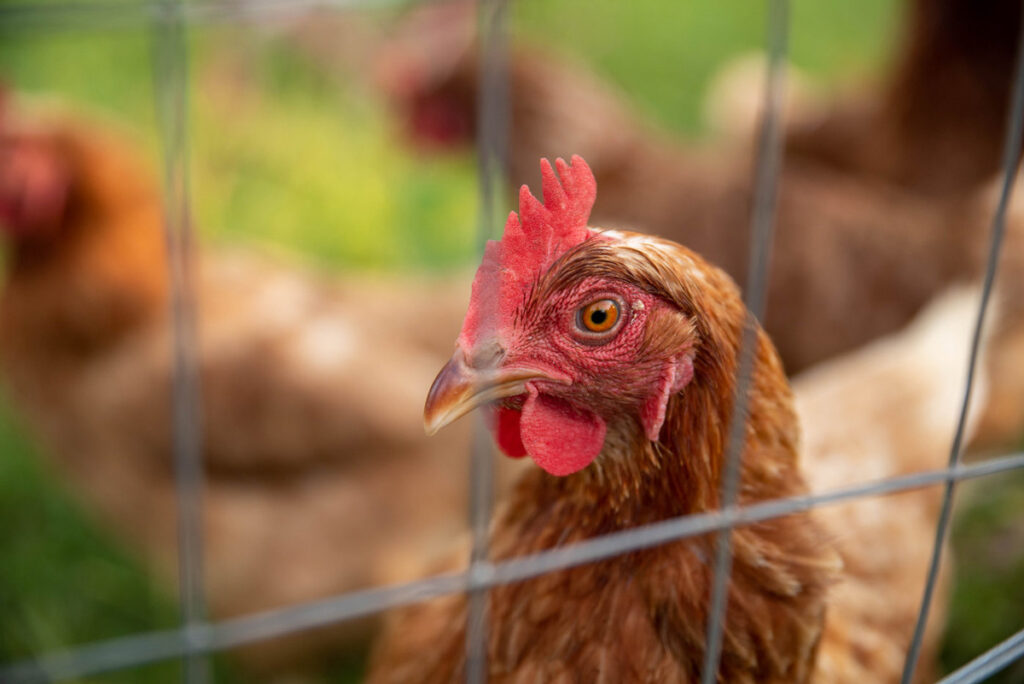
Why is the Chicken’s Comb Important?
The larger the comb, the more heat they can dissipate because they sweat through their combs. Single comb breeds like those listed below can do well in cold areas if you have hens only.
- Black Australorp
- Rhode Island Red
- Plymouth Rock
The hens will do well because they don’t have a very big comb. The roosters may have more problems. Because the roosters have a big comb, they may get frostbite. Their comb may even fall off and then the chicken won’t be able to sweat.
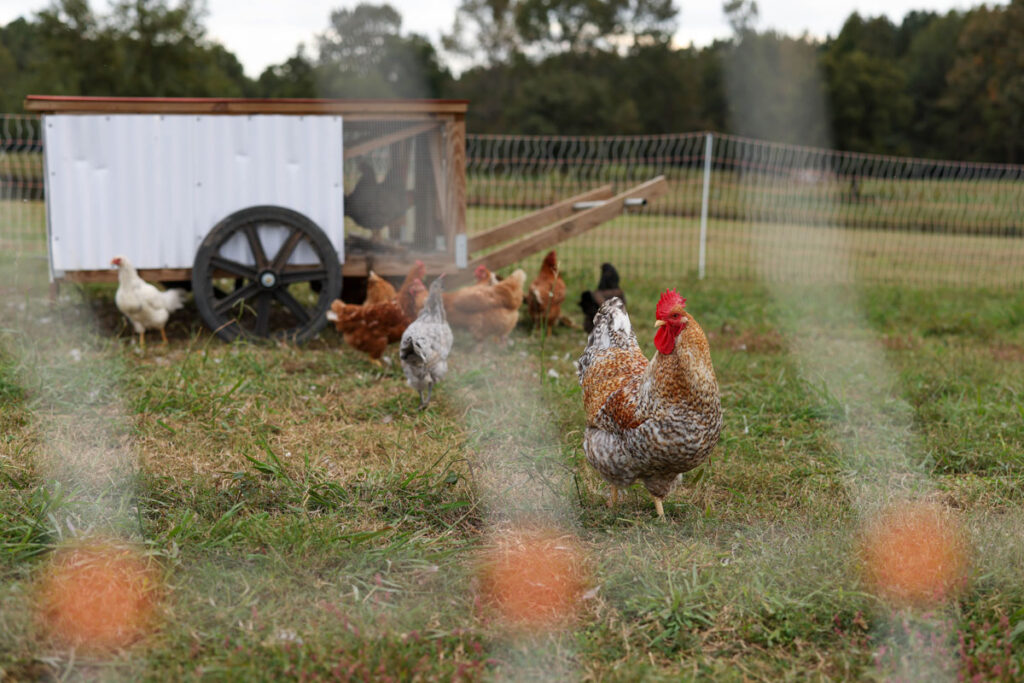
What Chicken Breed is Best for Hot Climates?
These lighter breeds do well in hot climates and are good layers:
- Andalusians
- Leghorns
- Minorcas
If you want meat and eggs, Barred Rocks (Barred Plymouth Rocks) are a good dual-purpose breed that typically tolerates the heat well.
With that said, you can keep any breed anywhere. It will just change how much work and care is required.
In Arkansas, I kept Cochins and Brahmas even though we had days over 100° F. But they had to have shade and we put fans in the coop in the summer for ventilation.
Chickens dehydrate really quickly so they always need fresh, clean, cool water. Chickens don’t like to drink warm water and they will literally dehydrate themselves if their water gets hot.
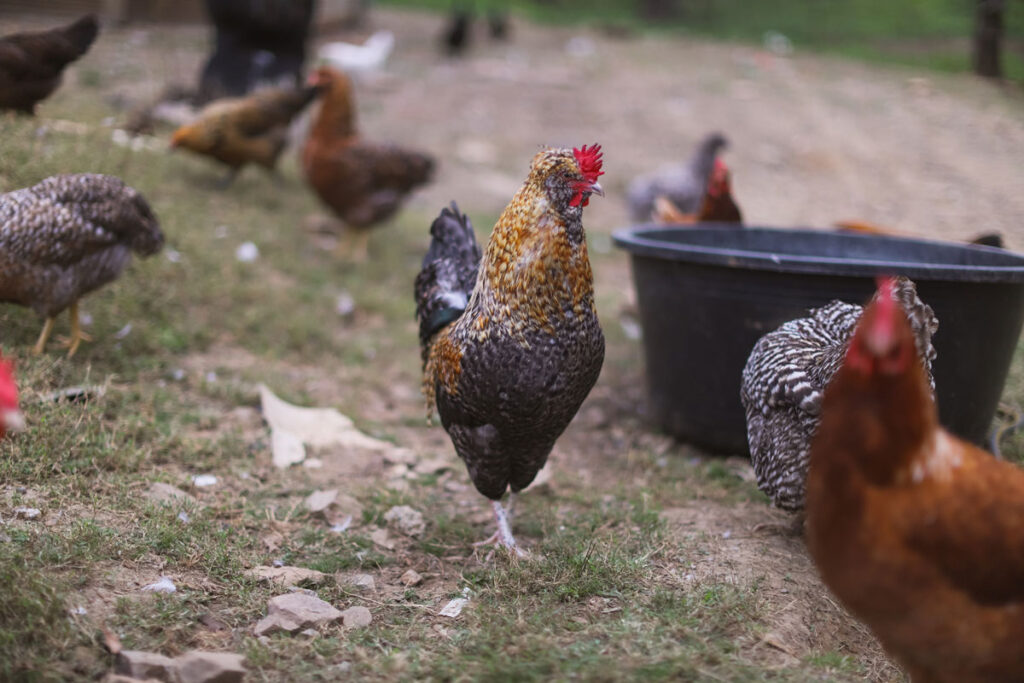
What are the Best Chicken Breeds for Sustainability?
For sustainability, people look for characteristics like broodiness and foraging. Foraging is actually a generational trait. The longer you keep a line of chickens of any breed and allow them to forage, the faster the chicks will pick it up and the better they will get at it.
- Australorp is at the top of Tom’s list in this category. Australorp is a dual-purpose breed known to be broody, good mothers that lay a lot of eggs throughout the seasons.
- Speckled Sussex
- Most of your classic American breeds like Delewares, and Rhode Island Reds
Keep in mind that you’ll have to give up your egg production to have a broody hen. Once a hen lays a clutch of eggs, she won’t lay again until those chicks hatch.
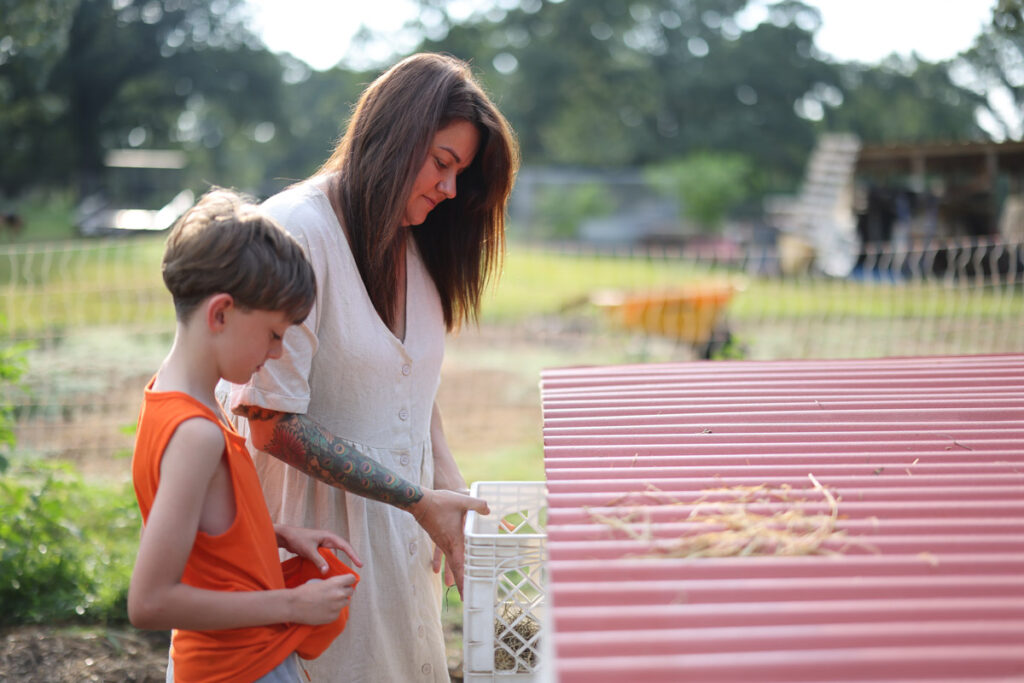
What are the Best Egg Layers?
A common misconception about chicken eggs is that brown eggs are healthier. In fact, there is no nutritional difference between different colored eggs.
The nutritional difference comes from what the chicken is eating. That is why free-range chickens can produce such healthy eggs.
Here are some of our favorite, prolific layers:
- Americaunas lay a fantastic, large blue egg.
- Red Star (also called the ISA brown) lays large brown eggs.
- Speckled Sussex lays about 250 medium size light brown eggs per year.
- Easter Egger is a fun breed because of the variety of egg colors they can lay, including light blue, dark green, and pink.
- Marans are regal birds known for their dark chocolate brown colored eggs. But you may not know that you can cross Marans with blue egg layers to get green eggs. Because darker colored egg layers produce fewer eggs, you will trade some production for the striking color when you choose Marans.
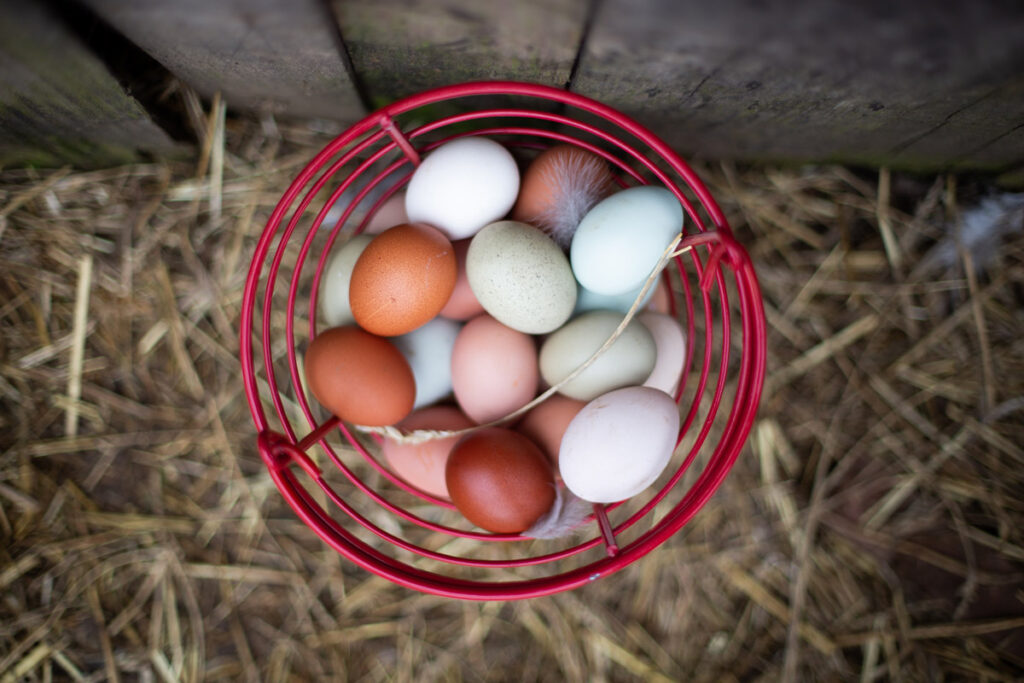
What Chicken Eggs Taste Best?
The fact that some people say a specific color or variety of chicken egg tastes better than another is a common misconception. The color or the breed of the chicken has no factor in what the egg tastes like.
The flavor of the egg is 100% dependent on what the chicken is eating.
Many people think chickens allowed to free-range for bugs have a better flavor. We would agree and also know that those eggs will have a rich dark yellow-orange yolk that's filled with beta-carotene and other beneficial vitamins and nutrients.
But no, different colored eggs do not have different flavors if all your chickens are eating the same.
If you are looking for even more information on chickens, check out the Murray McMurray website. I hope this helps you choose the perfect chicken breeds for your flock. Until next time, we bless you.
